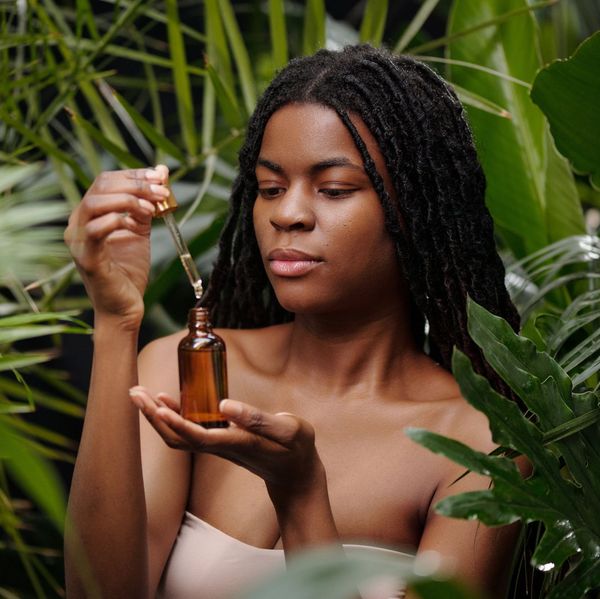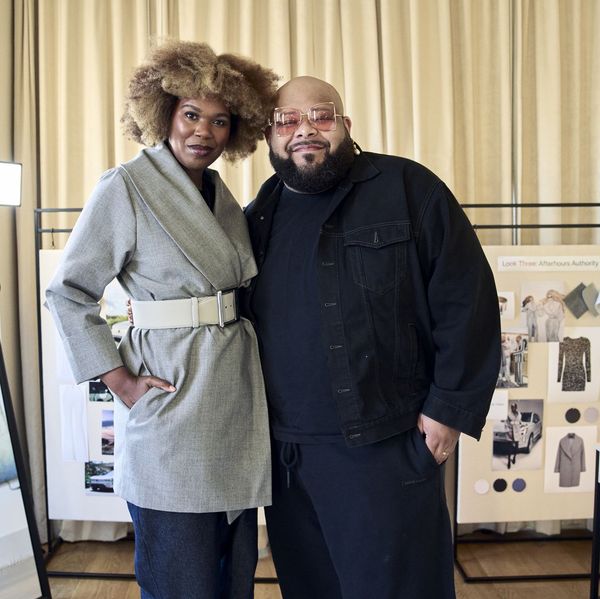After Applying To Over 167 Jobs, This Woman Got Hired By Mashable Through Twitter

In 2017, we're seeing the power of social media at its finest. We use it to speak on social and political issues that we didn't always have a voice in, news and entertainment stories are turned into viral pieces that would otherwise go unnoticed, and it's also a place where we gather together to give real time commentary on our favorite primetime TV shows (#ScandalThursdays and wine anyone?)
Amongst all of the great things that social media does, it also allows us to network in ways that we never have before.
When I first started using Twitter as a journalist, I knew that I wanted to connect with like-minded people in my field, but I had trouble finding them. I later discovered that the key to getting more followers on Twitter is through Twitter chats! Twitter chats are virtual discussions that allow you to connect with others and engage in conversations about things that you know. I have a few Twitter chats that Siri reminds me of each week, and #BizChats is one of them. Mashable's business sector has bi-weekly #BizChats program that highlights various topics of business from intern to executive.
As the curious person that I am, I researched who ran #BizChats and discovered the gem Tracey Edouard, who is a Social Media Assistant at Mashable. Mashable is a global media site that caters to a digital generation of movers and shakers, providing news about everything from: business, tech, politics, social media, entertainment, lifestyle and more.
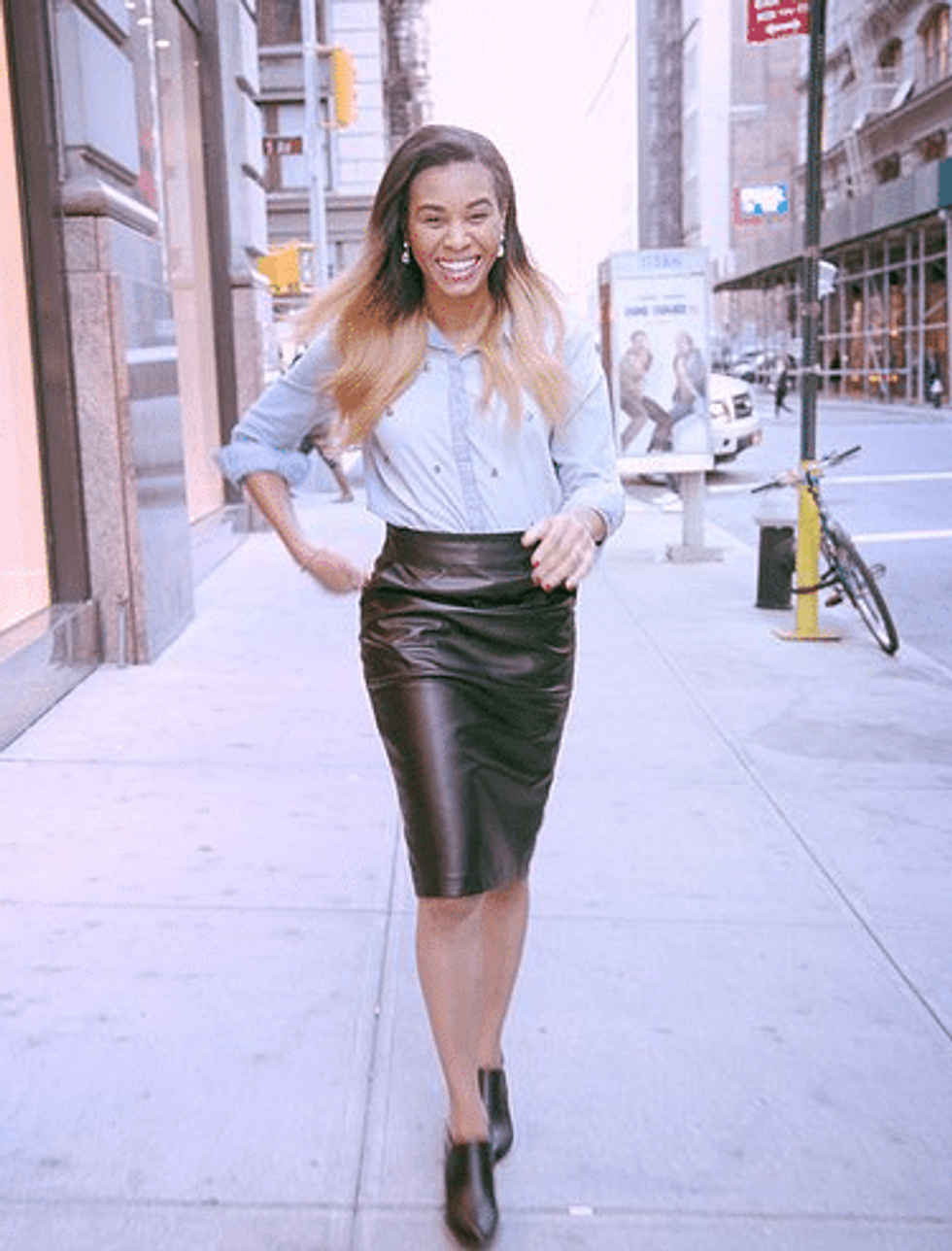
Finding a job can be extremely difficult, and being laid off doesn't instill the highest level of confidence in us. Tracey is someone that went through a rough unemployment period, but eventually with her faith and persistence, she was able to land her dream job. In a recent interview with Tracey, she took me to church and back and humbly shared her story of literally starting from the bottom and persevering.
Here are a few things that I learned and that inspired me about Tracey's story.
She was unemployed for nine months, and during that time applied to more than 167 jobs!
I went to Penn State University from 2009 to 2013, majored in Advertising and Public Relations with a minor in Sociology. After I graduated in 2013, I came across a job that was in social media marketing that I truly loved. After six months of working there, there was an unexpected series of layoffs, and I was let go. I found myself unemployed for nine months. This was a really, really hard struggle for me because I'm the type of person that is a true overachiever. When this happened to me, I had nothing else to lean on, but my faith.
As a Christian, I know how important it is trust God when things around you aren't working out. While unemployed, I felt like I turned into a full-time ministry student; I attended numerous bible studies and stayed prayerful, all the while applying to jobs consistently. Nine months after being unemployed, I realized I had applied to over 167 jobs!
 Turning to her faith helped her overcome depression
Turning to her faith helped her overcome depression
When I couldn't land a job, I dove into a deep depression – every day was a struggle, even to just get out of bed – I wasn't eating properly or taking care of myself. The only thing that carried me through was building up my faith and learning how to trust God in the good times and the bad.
After nine months of being unemployed, I interviewed with Mashable for a social media internship for their business sector. As an intern, I was determined to show them what I was about, and to prove why I deserved to be on the team indefinitely. After nine months of interning, I was offered a full-time position when there wasn't a guaranteed full-time position available at the beginning of the internship – they created a position for me!
During this time, I learned the importance of staying steadfast amidst the storm. There were times when I wanted to give up, and quit all of my trying. Especially during the sixth and seventh month of being unemployed, submitting job application after application, I was tired of reaching out to people and not hearing back. I realized that it's important to stay true to yourself and keep your faith. Just because your time isn't right now doesn't mean that it's never going to happen. Getting the internship at Mashable showed me why all of the other jobs that I applied to never worked out. This is where I'm supposed to be. This is where God is opening doors for me. I'm learning a lot, and I'm in an amazing environment.
[Tweet "Just because your time isn't right now doesn't mean that it's never going to happen."]
She created #Bizchats to stand out as an intern
#BizChats is the closest thing I have to a child. Starting it up from scratch was scary and exhilarating all at the same time. The responsibility of keeping #BizChats going rests on my shoulders. In addition to my daily duties as a Social Media Assistant, I brainstorm the questions, reach out to influencers, schedule Twitter promotions, run the chat, write the articles. I'm super proud to see how far it has come.
She started #BizChats without a background in business
Starting #BizChats for Mashable was definitely a challenge. Please note, I didn't go to Penn State for business, so when this internship was presented to me, I was kind of apprehensive to take it because I wasn't sure if I could truly deliver. As an intern, I knew that Mashable was looking to bring the conversation of business to our audience, compiled of millennials and young adults. We wanted to find new ways to talk about business and make it fun, fresh and engaging. Stepping in as an intern, I personally had a big misconstrued view of business. When I was creating the idea of #BizChats, I sat down and asked myself, 'As a consumer (and a millennial), what is it that I wanted to know about business?' After launching the first #BizChats Twitter chat, I noticed that it didn't matter what field you were in professionally, everyone is just looking for ways to better themselves – and this is how #BizChats found its footing. I believe what differentiates our Twitter chat from any of the others is that we are really about providing information to our audience to make them a better version of themselves. You don't have to be the cream of the crop to get this information. It is for people at any level of their career, and we provide tools and information necessary for them to be the best professionals that they can be.
#BizChats caters to everyone navigating the business world, not just big wigs
Some of the topics that we have discussed in #BizChats include: freelancing, job hunting, how to pay for college, cleaning up your credit score, how to excel as an entrepreneur, company qualtrics, how to turn ideas into a business, LinkedIn, networking dos and don'ts, work-life balance, the basics of business planning, budgeting, personal branding, and much more.
She's breaking barriers as a young Black woman in digital media.
One of the things that I struggled with when I was unemployed was the feeling of rejection I felt after putting in so much time and effort into job applications and not hearing back. I'm the type of person that is an over-achiever – I have a personal portfolio, a personal website, I'm the one that's always super analytical over my resume as well as my LinkedIn, so I couldn't understand why I wasn't hearing back from anyone. It's a catch-22 for not only young millennials that graduated from college and are looking to get their foot in any door, but it's even harder for women of color. There is a saying that I take with me wherever I go, and that saying is: 'you are always being watched.' When you take that saying and apply it to a woman of color, it's multiplied and magnified so much more. Not only are the barriers to entry even higher, but I also feel that sometimes people are watching to see what women of color are really about.
I do have to say that Mashable is more diverse than people would think. Mashable is embracing the fact that and understanding the benefits of bringing together a diverse staff, both professionally and culturally.
She stood out by stepping up
As a young Black woman, for me it is about always going above and beyond. When I say this I mean not always staring at the clock, waiting on 6 o'clock to come, and then just leave right away. If there is something that needs to be done, I'm volunteering, or if there are extra assignments to complete, I'm up for it. Also, not just being the status quo and typical employee - if you are just doing what you are told, that's not enough anymore. Thinking outside of the box, and trying to bring something new to the table shows that you care and that's really what #BizChats was for me. That was my challenge, my risk, my opportunity to go above and beyond, and it paid off greatly.
[Tweet "I believe in going beyond the status quo in life."]
Staying ahead of the curve helped her get her first job
In my first year of college, I knew that LinkedIn was going to be something that employers would pay attention to. For me, having a LinkedIn early on was super important because I was able to easily keep track of all of my accolades from freshman to senior year. It wasn't like I had to sit down senior year, and scramble and dig together everything that I had done in college.
She owns her name, literally.
Another thing that I did early on was I bought my own name. When I say this, I mean I bought my own domain name. Doing so was very important for me. Everyone has their own unique name and it is very important while in school to build your online presence because that's where employers are going to be looking. When you buy your domain name, you can then use hosting sites like wix.com, or squarespace.com, to build yourself a personal website. When creating your domain, don't forget to be consistent. Make it something along the lines of: [first and last name] [dot] com. Include your unique website on your business cards and resume, too. Having that consistency will make it easier for recruiters to find you not have to become Nancy Drew to find anything out about you.
At this point in your life, you are in charge of showing your best qualities, so why not take advantage of that early on? By the time you reach your junior in college, you'll already be ahead of the game.
 She suggests having a bomb (professional) headshot to attract recruiters
She suggests having a bomb (professional) headshot to attract recruiters
Find a friend that can take really nice photos with a good camera and get some headshots taken. Once this is done, really take the time to build a website that you are proud of so that you can also show off your talents, accomplishments, and what you are passionate about in a unique way. At the end of the day when you are applying to jobs, and your resume pops up in a recruiter's inbox, rest-assured you will be researched. People are going to Google you, and they are going to look up your social media because they want to see what you are about. It is good to already have that online presence there and in a positive manner.
She sends thank you videos instead of thank you cards
In college, having my own website and a LinkedIn account helped me stand apart from others. Another thing, when it comes to interviewing and job fairs, I personally feel that thank you cards have become the new vanilla. I'm saying that because very rapidly we are turning into a video-centric society. There are so many unique ways to show appreciation after an interview or meeting. After every interview that I went to, I made the interviewer a personalized thank you video. They weren't long, maybe like 30-40 seconds long -- tops. Please note, it wasn't hard to do, and if I can do it, anyone can. I'm not a video editing guru. I just used my iPhone and couple books for propping purposes. In my videos, I bring up several key points I shared with the interviewer from our conversation and thank them for their time. I upload the videos onto YouTube on a private account, and get the link and send them the video.
[Tweet "Sending thank you videos is the new 'it' thing after interviews."]
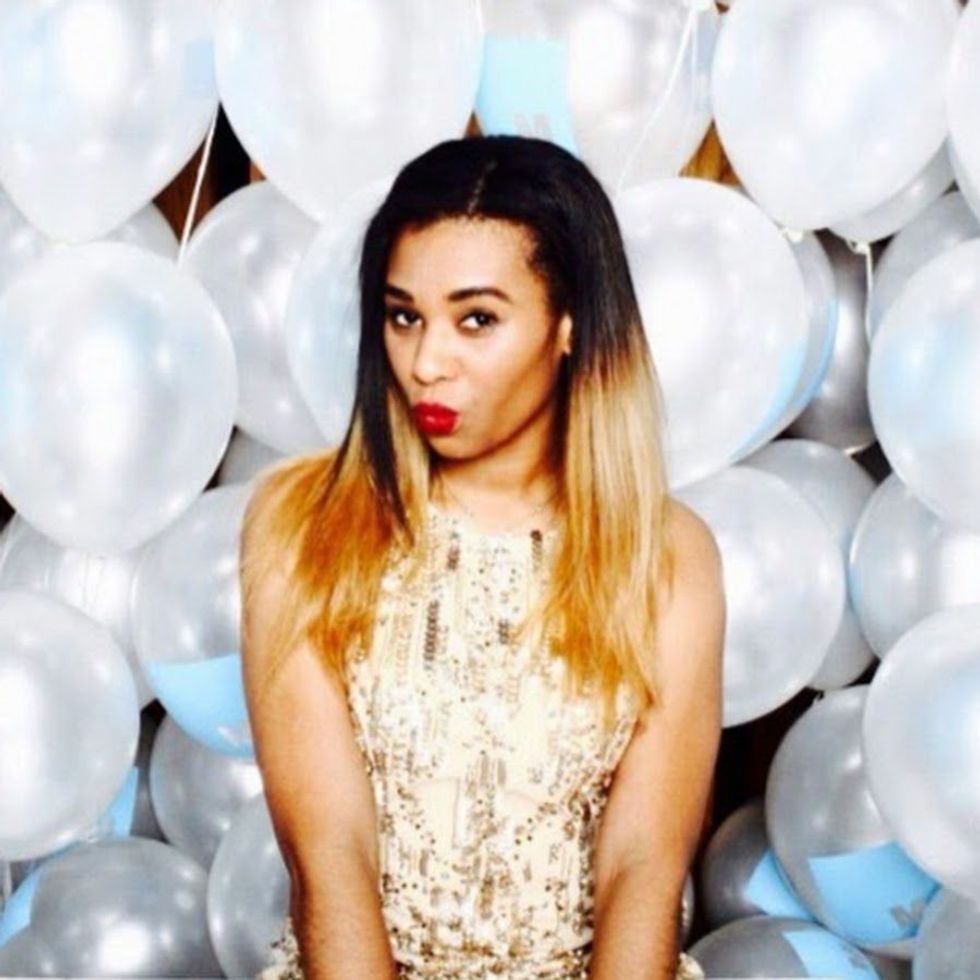
Her spirituality keeps her motivated
A verse that I hold near and dear to me is from Proverbs 3: 5-6. It reads, “Trust in the lord with all of your heart, and lean not on your understanding. In all your ways, submit to Him and He will make your path straight." This for me was my mantra when I was unemployed and it still is now.
When I got laid off, I was devastated and I didn't know what the future would hold. This scripture spoke to me and it taught me that no matter what's going on, the Lord has my best interests in mind. Even when the path you're traveling isn't leading where you expected, you have to trust Him.
I encourage other young women who are in college to stay prayerful and stand in the truth that the Lord knows where they are at in all situations. Please know that if you seek God first He will make your path straight in all situations and fulfill the desires of your heart.
She's inspiring other women not to give up on their dreams
I hope to inspire other women to not give up. As painful as your journey may be, emotionally, professionally, spiritually, you have to know that there's beauty in the pain and it's all a part of growing character. The Lord doesn't waste painful situations -- I truly believe that. Every situation that you go through, whether it is good or bad, is for a divine purpose.
This Is How To Keep 'Holiday Season Stress' From Infecting Your Relationship
Hmph. Maybe it’s just me, but it seems like there is something really weird happening in the fall season air (because winter doesn’t officially begin until December 21) that cuddle season is in full swing while break-up season is as well. In fact, did you know that break-ups are so popular during the holiday season that December 11 is deemed Break-Up Day?
The reasons why relationships shift around this time vary; however, I did both roll my eyes and chuckle when I read that a very popular one is because it’s an easy way to get out of getting one’s significant other a Christmas present. SMDH.
Anyway, I personally think that the less shallow folks out here may contemplate calling things “quits” or they at least distance themselves a bit from their partner (and what I’m referring to is serious relationships) due to all of the stress and strain that oftentimes comes with the holidays whether it be financial, familial, due to their tight schedules or something else.
Listen, I would hate for you and your man to miss the fun and happiness of experiencing this time of year, all because you are so overwhelmed or irritated that you can’t really enjoy it. That’s why I have a few practical tips for how to avoid allowing the typical holiday season stress from INFECTING your relationship.
Manage Your Expectations
 Giphy
GiphyUnmanaged expectations. If there is a main reason why the holiday season tends to be so stress-filled for so many people, I’d bet good money that this is the cause. And when you’re in a long-term relationship, expectations can manifest themselves in all sorts of cryptic and/or unexpected ways. You might have relatives who assume that you are going to be with them for Thanksgiving or Christmas when you have other plans in mind. You might be thinking that you are going to spend one amount for presents while your man is thinking something totally different. When it comes to scheduling, your signals may be crossed.
And you know what? To all of these scenarios, this is where clear and consistent communication come in. Don’t assume anything. Don’t dictate anything either. From now until New Year’s, mutually decide to check in once a week, just to make sure that you are both on the same page as it relates to the holidays and what you both are thinking will come along with it. The less blindsided you both feel, the less stressed out you will be. Trust me on this.
Set (and Keep) a Budget
 Giphy
GiphyOkay, so I read that last year, 36 percent of Americans incurred some type of holiday-related debt. Hmph. Last year, there was still some sense of normalcy in this country, chile, so I can only imagine what finances are gonna look like over the next several weeks. That said, since I don’t know a lot of people who don’t find being broke stressful, make sure that you and your bae set a budget and then stick to it this year — no ifs, ands or buts.
Because really, y’all — it doesn’t make sense to deplete savings and/or max out credit cards for a few days of giggles only to be damn near losing your mind because you don’t know how to make ends meet come Dr. Martin Luther King, Jr. Day.
And by the way, this tip doesn’t just speak to things like food and gifts; I also mean travel. If it doesn’t make a ton of sense (or cents) to be all over the place this year — DON’T BE.
Keep Matthew 5:37 at the Forefront
 Giphy
GiphyIf off the top of your head, you don’t know what Matthew 5:37 says, no worries, here ya go: “But let your ‘Yes’ be ‘Yes,’ and your ‘No,’ ‘No.’ For whatever is more than these is from the evil one.” That verse right there? Oh, it’s a boundaries lifesaver! I say that because do you see “maybe” or “I’ll think about it” in there? Nope. LOL. It says that you should tell people “yes” or “no” and leave it at that — and that complements Anne Lamott’s quote, “’No’ is a complete sentence” impeccably well. Yeah, you’ve got to remember that anything beyond a yes or no to a request is privileged information; you don’t owe anyone details or an explanation.
Besides, if you are really honest with yourself, when someone asks you something and you give a “Umm, let me think about it” kind of reply, more times than not, you already know what your answer is going to be — so why not let you both off of the hook? Give your response. Commit to that. And let everyone (including yourself) get on with their lives and schedules.
I promise you that when it comes to those holiday parties, you are pissing more folks off by not RSVP’ing or doing so and not showing up than just saying, “Thank you but not this year” off the rip.
Remember That Your Personal Space Is Privilege Not a Right
 Giphy
GiphyA friend of mine recently bought a new house and invited me over to come see it. He’s a single man with no children, so as I was taking in all of the space that he had, especially as I walked through his finished basement, I joked about relatives coming to live with him. “Hell no” and “absolutely not” were pretty much his immediate responses as he went on to say that some folks even had the nerve to be offended when he told them that he had no intentions on taking DNA in.
Ain’t it wild how people think that your stuff is their right? And yes, that brings me to my next point. Your home is your sanctuary space. If you want to host folks this year — cool. If not, ALSO COOL. Please don’t let folks (family included) guilt you into how they want you to act or even into what they would do if the shoe was on the other foot. You are not them — and as one of my favorite quotes states, “If two people were exactly alike, one of them would be unnecessary.” (A man by the name Larry Dixon said that.)
Hell, my friends? They know that I am good for sending them random things that they need or even want all throughout the year. Coming over to hang out at my pace, though. Uh-uh. Chalk it up to being a card-carrying member of the ambivert club yet I like keeping my living space personal — and I sleep like a baby, each and every night, for feeling that way.
Always remember that your space, your time, your resources, your energy and shoot, yourself period (including your relationship), are all things that are your own. You get to choose how, when and why you want to share them. The holiday season is certainly no exception.
Cultivate Some “You Two Only” Traditions
 Giphy
GiphyIt’s not uncommon for some couples to hit me up after the holiday season to “detox.” Sometimes it’s due to the financial drama (and sometimes trauma) that they experienced. Sometimes it’s because they allowed their relatives (especially in-laws) to get more into their personal business than they should’ve. More than anything, though, it tends to be because they didn’t get enough quality time together and so ended up feeling “disconnected.”
Please don’t let that happen. Listen, I’m not even a holidays kind of woman and yet, I will absolutely sit myself down with some hot chocolate and chocolate chip cookies to enjoy a Hallmark holiday film or two. Aside from the fact that most of them are lighthearted and sweet, I also like that they usually focus on couples loving on each other amidst all of the holiday beauty and ambiance — which is something that all couples should set aside some time to do.
Maybe it’s a vacation. Maybe it’s a staycation. Or maybe it’s my personal favorite, A SEXCATION. Whether it’s for a few days, the weekend or even overnight — don’t you let the holidays go by without setting aside time for you and your man to celebrate one another. Don’t you dare (check out “Are You Ready To Have Some Very Merry 'Christmas Sex'?”).
GET. SOME. REST.
 Giphy
GiphyI once read that 8 out of 10 people get stressed out over the holidays and 3 out of 10 lose sleep during to it — and when you’re stress-filled and sleep-deprived, that can absolutely lead to hypersensitivity, making mountains out of molehills and even not being in the mood for sex.
Your relationship can’t afford to go through any of this, so definitely make sure to prioritize rest. I don’t care how unrealistic it might seem during this time, sleep should never be seen as a luxury; it will always and forever be a great necessity.
That said, try to get no less than six hours of shut-eye in (check out “6 Fascinating Ways Sex And Sleep Definitely Go Hand In Hand”) and even ask your bae to take a nap with you sometimes (check out “Wanna Have Some Next-Level Sex? Take A Nap, Sis.”). Not only will sleep help to restore your mind, body and spirit but, when it’s with your partner, it’s an act of intimacy that can make you both feel super connected, even in the midst of what might feel like chaos.
___
Holiday season stress is real. Still, never give it the permission or power to throw your relationship off. Put you and your man first and let the holidays be what they are gonna be, chile.
Let’s make things inbox official! Sign up for the xoNecole newsletter for love, wellness, career, and exclusive content delivered straight to your inbox.
Featured image by Shutterstock
'Constant Reassurance' Is The Relational Orange Flag No One Wants To Address
Read more than scroll. Boy, if there is a motto that I would encourage people to implement, now more than ever in their life, it would be how important it is to read (actual books, researched data and fact-based information) over merely scrolling via social media. Because boy — every time I look out on apps to see what folks are talking about, I don’t know if I’m impressed with or appalled by how many nothing-more-than-emotionalized opinions are so boldly stated when, after five minutes on Google, it’s clear that there are virtually zero facts to back them up.
Not to mention the fact that so many folks literally don’t read (you know, past skimming) anymore — and yes, I have stats to prove it. I recently read that back in 2022, reportedly, a little over 48 percent of people read one book over the course of that entire year (that is not a good thing and proves that book reading is on a steady decline). Meanwhile, the amount of time that is spent on social media: 2.5 hours on a daily basis. That’s 150 minutes of listening to folks just say…whatever. And if you listen to it long enough, you could actually start believing it as gospel.
This includes what I am going to touch on today: the belief that if someone really cares about you, they should constantly reassure you. Y’all damn near are gonna have me join the world of social media again, just to address this one fallacy. For now, though, I’ll settle for making some points via this article — because as you can see from the title, I don’t agree with that conclusion at all.
In fact, I personally believe that thinking this way is a pretty big relational orange — if not red — flag.
Reassurance. And What It Does for a Child.
 Giphy
GiphyIf you’ve read enough of my content, you know that I am big on word definitions — and when it comes to the word “reassurance,” the meaning alone explains why this article has the title that it does:
Reassurance: something, such as information, praise, or an action or gesture, that soothes, comforts, or restores to confidence
Reassurance restores confidence. Bookmark that, please. I will certainly circle back to that point before I am done.
Okay, so when it comes to, say a child, there is absolutely a place for reassurance. That’s because they are still in the process of significant self-development and so they need reassurance in order to feel safe, secure and loved. It’s also a way for them to establish trust in others.
However, did you know that many mental health experts say that if a child deals with, say anxiety, constant reassurance can actually be counterproductive because they can start to rely on external validation to emotionally stabilize them instead of learning how to remain calm and relaxed on their own (yeah, bookmark that too)? Some other ways that constant reassurance can become potentially problematic is it can cause kids to create problems that don’t exist, to overthink and to jump to the wrong conclusions (hmm…very interesting).
And so, already, we’re seeing something pretty interesting, right? Although reassurance has its place, too much of it, even for kids, typically ends up doing more harm than good.
Let’s keep building.
How 'Lack' As a Child Can Manifest As an Adult
 Giphy
GiphyOkay, so we just touched on how constant reassurance can be counterproductive for an anxious child. Now what about when that child grows up? If they never learned how to properly and effectively deal with their anxiety, what then? Well, this is where attachment styles can very easily come into play — especially since one of them is literally called “anxious attachment style.”
Anxious attachment style is rooted in insecurity. It typically stems from experiencing the type of dysfunctional upbringing that resulted in one or both parents being unpredictable or inconsistent in their caregiving approach and techniques. As a result, the child deals with things like fear of abandonment or rejection and, without healing from that, they become an adult who is pretty much the exact same way.
In relationships, it can manifest in them being extra clingy, codependent, super jealous, controlling or — catch it — someone who is always looking for validation and reassurance.
Hmph. Did you catch that? Did you really catch that? Needing constant reassurance in a relationship IS NOT something that should automatically come with a relationship. In fact, if you’re someone who has this type of need or even expectation, there’s a really good chance that what you actually need is therapy — not for your partner to work harder to make you feel better about yourself or the relationship.
Which brings me to my next point.
Relationships Can Be Therapeutic. They Aren’t Therapy, Though.
 Giphy
GiphySomething that some of my clients will tell you that they’ve heard me say, more than once I might add is, “PARENT and PARTNER are not palindromes.” A palindrome is a word (line, sentence, etc.) that is the same whether it is spelled backwards or forwards — and while, of course, parent and partner couldn’t qualify as being that, what I mean is there are far too many people who think that partners should pick up where parents left off and/or dropped the ball — and that is a super unhealthy approach to relationships. Come to think of it, not only is it unhealthy but really unfair as well.
This is exactly why I’m not big on phrases like “the princess treatment” in adult relationships. A princess is the daughter of a king while a queen is the wife of one. For a grown woman to expect a man to do what a father did for her as a child without accepting that as an adult, there are far more responsibilities as a wife that comes into play? Yep, that is toxic thinking.
And you know what? So is expecting your partner to overcompensate for where your father and/or mother didn’t show up in the way that they should have. That is not your partner’s fault, their role or their assignment while dating you. If you feel otherwise, it really is time to speak with a professional who can help you to do a bit of “reprogramming” in your thinking because, for you to feel and/or assume that since your parents didn’t make you feel confident and secure or teach you how to value yourself, your partner should work overtime to make up for it? There is not one thing that is healthy, mature or emotionally solid about having that type of mindset.
And that is why I am also good for saying that, although relationships can be therapeutic (healing), they should never EVER be seen as therapy. Therapists are trained to deal with the mental and emotional challenges that people have. On the other hand, no one should expect their partner to have the knowledge and expertise that professionals do — and while we’re here, partners also shouldn’t trust that someone who needs the assistance of a therapist to become whole (again) would know exactly what steps are required for that to happen.
So yeah, if you’re someone who thinks that being loved means that someone needs to constantly make you feel good about yourself or secure in the relationship — you probably do have an anxious attachment style. See a professional to get that confirmed, though. Because no one should have to make you feel valued or worthy. That is an inside job.
And this brings me to my final point.
It’s Not Fair to Want Someone to Love You More than You Do
 Giphy
GiphyFor this last point, something that Christ once said immediately comes to mind:
“No one puts a piece of unshrunk cloth on an old garment; for the patch pulls away from the garment, and the tear is made worse. Nor do they put new wine into old wineskins, or else the wineskins break, the wine is spilled, and the wineskins are ruined. But they put new wine into new wineskins, and both are preserved.” (Matthew 9:16-18 — NKJV)
A lot of times, Christ spoke in parables because it was easier for people to get where he was coming from (Matthew 13:13). Anyway, along these lines, what would be the point in pouring a liquid into a bottle that has a hole in it? It’s not built to contain and maintain the fluid and so, no matter how delicious the drink may be, no matter how many times it’s poured into the bottle, the bottle is never going to remain full — because it has cracks in it.
BOOKMARK THAT.
My fourth baby’s daddy (check out “Why I Named The Children I Aborted”), while we were in the process of our “exit interview” (which is what I choose to call it) of our dynamic, he said something that has always stayed with me: “Shellie, your biggest problem is you receive compliments are revelations when they should be seen as confirmations.” Hmph. The irony of HIM saying that is kind of a trip and yet, at the time when we were experiencing each other, he was exactly right. I should’ve never had such a low sense of self-worth that whatever a man said to me had me so in awe that I either felt extremely grateful or became super addicted to his validation.
And y’all, that is exactly what needing constant reassurance looks like — because why does someone need to keep telling you that you are beautiful, keep saying that you are wonderful, keep letting you know that they want to be with you — keep restoring your confidence in yourself and in your relationship with them?
In other words, why should they work harder at making you feel good about yourself and solid in your relationship than you are willing to? Isn’t that just like pouring liquid into a broken bottle?
There is someone in my family tree who I had to distance myself from because he kept venting to me about his marriage and the fact that his wife was just like this. Sadly, it was never (and I do mean NEVER) enough that he chose her — whenever she felt some type of way about herself, here she came looking for him to fill her voids. After a couple of years of the nonstop needs for reassurance, he was worn out from doing it and I was exhausted from hearing about it. He was too scared to call her out and she was too unaccountable to get the real help that she needed. Whew. Toxic on top of toxic.
So Shellie, what are you saying — that we shouldn’t expect compliments, affirmations, support and encouragement in our relationships? Chile, if that is what you got out of this, you are choosing to think that way because that couldn’t be further from where I am coming from.
Again, you’ve got to remember what reassurance means: it’s about restoring confidence. A compliment is “an expression of praise, commendation, or admiration” yet if you already know that you are pretty, smart, funny, whatever, someone telling you that isn’t “building your confidence;” it’s cosigning on something that you are already aware of. Encouragement is about inspiring or stimulating someone and so yes, of course, the right partner is going to want to see you win in life and so they are going to offer up influence and motivation to help you — but what if they aren’t there?
Shouldn’t you be able to encourage yourself? ABSOLUTELY. However, expecting them to restore your confidence due to things that have nothing to do with them or because you simply lack self-confidence? That is not how relationships are to go. If you aren’t sure of yourself (which is a foundational definition of confident), get to the root of why and then figure what you need to do to become sure — that way, your partner doesn’t have to constantly “fill you up;” actually, what they do will be surplus instead of void-filling because your “bottle” will be unbroken.
____
I’m telling you, if you pay attention to the relationship side of socials, at least twice a day, someone will talk about how they think that a relationship should entail receiving constant reassurance. Lies on top of lies. No one should think that love means trying to make someone else feel sure about themselves because they don’t know how to do so on their own.
And this is why I say that expecting constant reassurance is an orange, if not red, flag.
Because when you already feel good about yourself, there is no need.
And if you don’t, figuring out how to is an inside job — FIRST.
Let’s make things inbox official! Sign up for the xoNecole newsletter for love, wellness, career, and exclusive content delivered straight to your inbox.
Featured image by Shutterstock



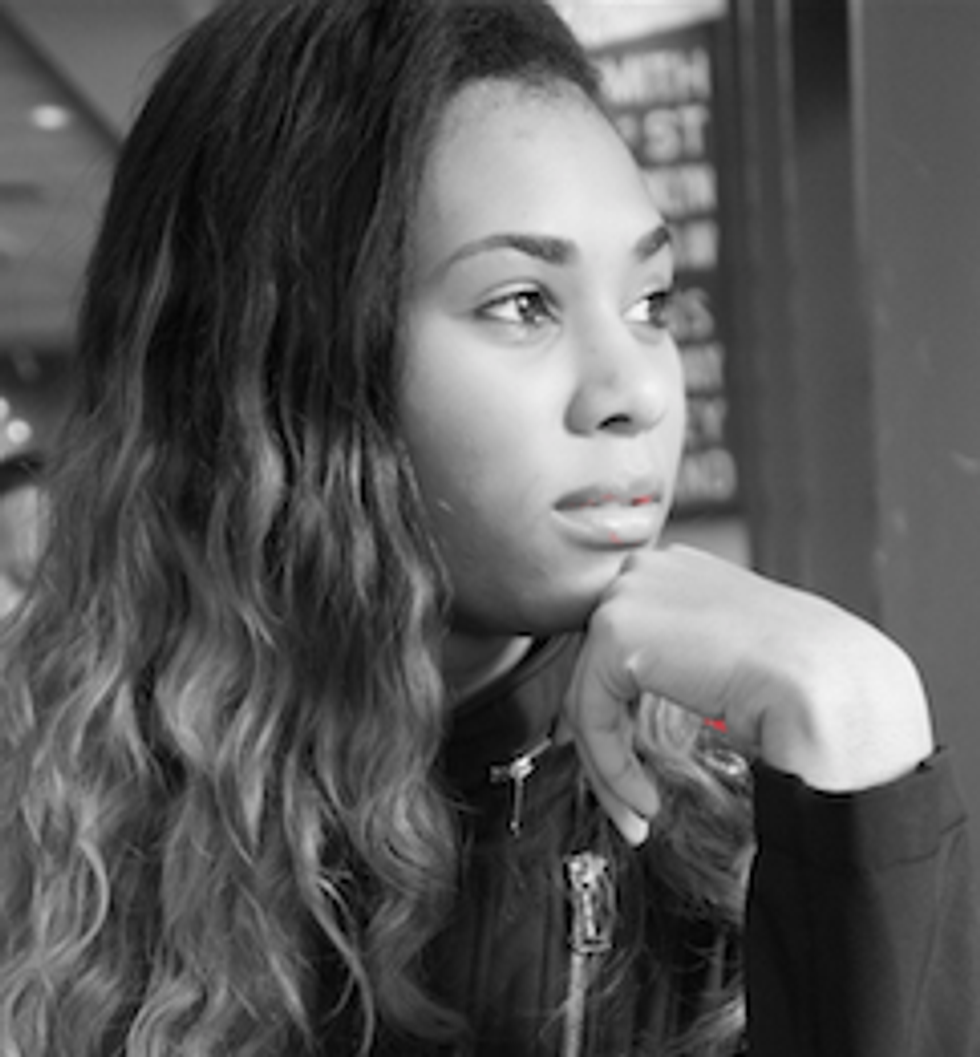
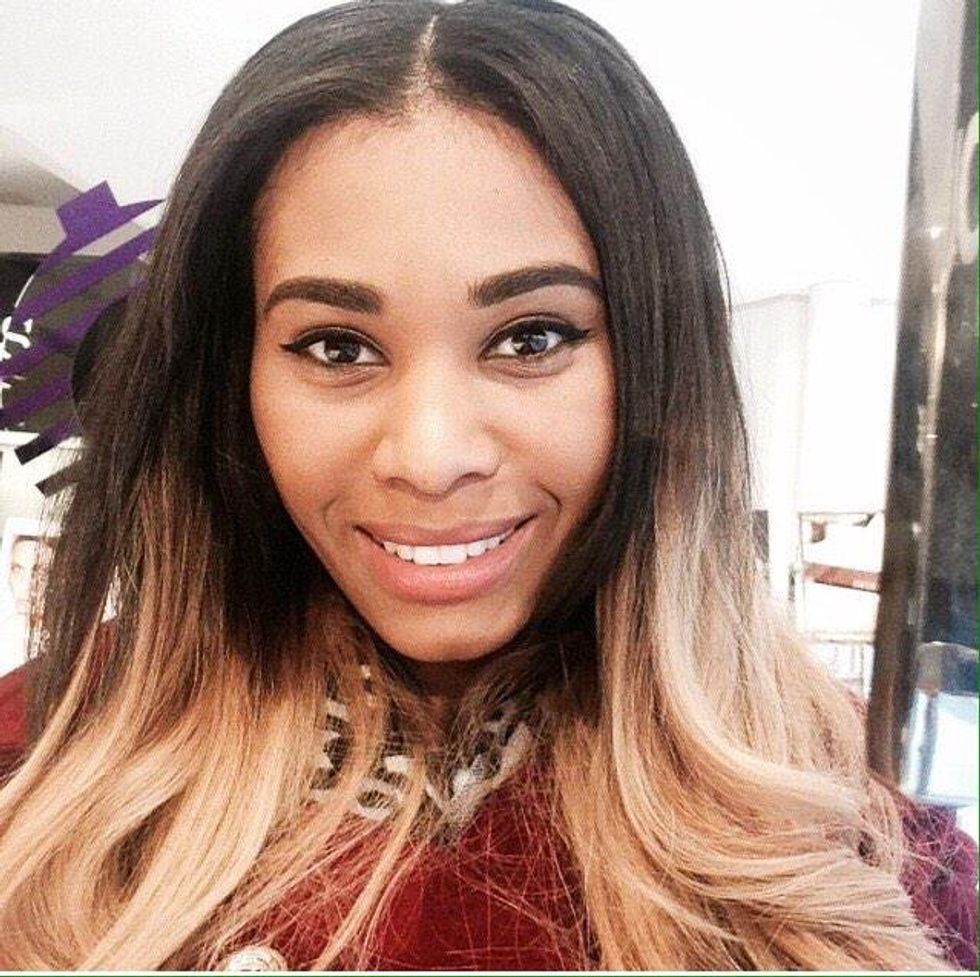
 She suggests having a bomb (professional) headshot to attract recruiters
She suggests having a bomb (professional) headshot to attract recruiters